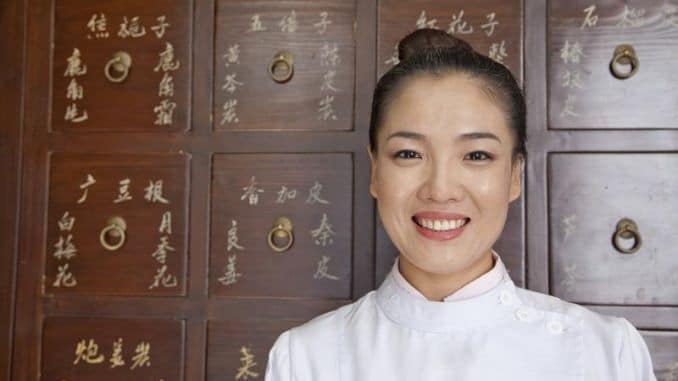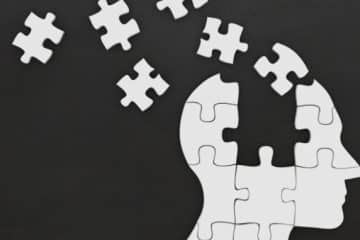The majority of our classic textbooks say that Chinese medicine has been around between 2000 to 3000 years. However, archeologists have found bone fragments and bamboo needle-like instruments that date back to 6000 years ago. They believe that these artifacts were originally used for acupuncture needles. They also found many well-preserved mummies that had acupuncture points tattooed on their bodies. One mummy in particular, whom they called ‘Ice Man', was found with tattoos of very anatomically-located acupuncture points on his body. When they opened the body, they noticed that he had terrible gut issues. His intestines were completely destroyed. Upon further investigation of the points that were tattooed on his body, they noted that acupuncture could have been used to treat that type of condition.
When people think of Chinese medicine, they typically think of acupuncture, but Chinese medicine encompasses so many other aspects of healing, including pain-relief, fertility issues, dermatology, and even pediatrics. A combination of acupuncture and herbal medicine is often used for the best results.
Examples of Chinese Medicines:
- Tui na – Chinese medical massage
- Qigong – A form of exercise used to balance the body
- Yang Sheng Fa – Chinese dietary therapy. A common component of Chinese Medicine is dietary therapy, or eating within the seasons and surroundings. Depending on your constitution, there will be some foods that are better for you than others.
- Moxibustion – This Chinese herb, also known as mugwort, can be lit on fire. It can also be used to treat bruising, contusions, broken bones, and any sort of skin condition. If you have an acupuncture point that you want to stimulate, Moxibustion can really increase the affectivity of the needle.
How does acupuncture work? How can sticking a little needle in my body create such a profound effect?
Within your body, you have 12 regular meridians, and 8 extraordinary meridians. A meridian is a longitudinal vessel of energy that carries “qi” (vital energy) throughout the body. We were taught in the classics that this is the relationship between heaven and earth. In Chinese medicine, it is an intangible vital life force that drives our entire body.
There are branches of these meridians that reach throughout the body. Each of these 12 meridians is paired up with another meridian and also runs through a pair of organs in your body. You have your lung and large intestine, your spleen and your stomach, your heart, and the small intestine. Your San Jiao is your Triple Warmer, and it can be described as the connection between all the other organs, almost like a fascial system. It is paired with your pericardium, your kidneys, your bladder, your liver and your gall bladder.
Along these meridians are acupuncture points. Acupuncture points are the points where the energy or ‘qi' from the meridians comes up to the surface of the skin, almost like a well of energy. Through a needle, those wells of energy can be manipulated. Every single acupuncture point has a very specific anatomical location. They also require very specific angles. TCM practitioners need to know exactly where all of your organs are located, and exactly how deep to insert each acupuncture needle. Each needle is specifically located along these meridians.
Every organ has a specific function and indication, and even holds a specific emotion.
Meridians have a very strong relationship with the fascial plains of the body. In Chinese medicine, it is very important that acupuncture points work with the fascial system. The meridians, or the longitudinal vessels of energy that run through our body, are located along specific fascial plains. Fascia is like a connective tissue that joins and holds the organs together, almost like a sausage casing covering. Of course, there is a skin connection as well, but the fascial connection is incredibly strong in Chinese Medicine.
Why choose Traditional Chinese medicine over conventional medicine?
Please note, there is always a time and a place for Western medicine. But when it comes to preventative medicine and living a more holistic lifestyle, TCM definitely shines. Sometimes there are things that Western medicine can’t easily explain, but there is often an explanation in TCM.
If you go to see a TCM practitioner, you will be asked questions regarding your health history and your current issue. TCM practitioners look at everything. Examples of these questions are:
- About your life
- About your career
- About your stress levels
- What are your day to day activities?
- Are you in a pool, submerged in the water all day?
- Are you a mountaineer?
- Are you commuting to and from work an hour in the morning and an hour in the evening?
- Are you sitting all day?
- Are you exercising?
- What’s your living environment like?
- Do you live in an old house full of mold?
- Do you live beside an industrial site?
- Do you live in the forest?
All of these questions are very relevant and important when determining where your imbalances could have originated. TCM practitioners also look into your diet. Examples of these questions are:
- What has your diet been like for a while?
- Was there a change in your diet when you started to have these symptoms?
- Have you been eating foreign foods lately that you don’t usually eat at all?
- What is your stress level?
- Do you have an excessive level of emotions?
- What is your family history?
Tongue and Pulse
The biggest diagnosis tools that TCM practitioners use are the tongue and pulse, believing that the tongue is the complete representation of what’s going on inside your body. There are even Chinese medicine doctors that only look at your tongue and pulse, basing their entire treatment on their findings. They look at the color, shape, size, texture, and coating of the tongue. Every aspect is very relevant. Different areas of the tongue also represent different organs.
Past Trauma
TCM practitioners also analyze both physical and mental trauma. Was there a spiritual trauma, an emotional trauma, or a physical trauma that occurred years prior or immediately after your illness started?
Practitioners also look into womens' hormonal cycles. How many pregnancies have occurred and were there any issues along those lines? These all become very important in diagnosis.
When looking at these imbalances, generally there is an emotional component to everything. Going back to the organ system in Chinese medicine, for example, the lungs deal with grief. When somebody is going through a lot of grief, lung congestion, head colds, and the like are very common. Another example is your large intestine, which deals with our body waste. In Chinese medicine, if you have an inability to let go of your mental waste, often we see physical symptoms such as constipation or diarrhea. Your spleen, which is associated with digestion, is connected to overthinking, worrying, and contemplating. Think about how your appetite can really change depending on how worried you are. The heart deals with joy and anxiety, your kidneys are your fear organ. The liver deals with stress. TCM Practitioners always take emotional aspects into consideration when treating patients.
In TCM, practitioners look at the whole picture of a patient's life, make constant changes to the patient’s lifestyle, environment and diet. They counsel them emotionally and let needles and the herbs do the rest. When you do see a TCM practitioner, it’s not just one treatment. Generally, years and years of build-up have led to the symptoms experienced today. To undo those poor balances and those postural dysfunctions, it can take a long time. It’s important to create a good relationship with your practitioner, because you’re going to be seeing them for a long time.
How do you find a practitioner?
Look online, but remember it’s always a great idea to look at reviews. As for sports medicine training, you can go to www.sportsmedicineacupuncture.com. It will give you a whole list of sports medicine practitioners all over the world. If you are in Canada or in the US, just Google your provincial licensing board or state licensing board for acupuncture.
Adrienne Coombs was born and raised in Nelson, British Columbia. She began her education with a degree in Kinesiology in Vancouver, B.C. Following this, she studied Traditional Chinese Medicine at the Academy of Classical Oriental Sciences in her hometown of Nelson where she finished the 5- year Doctorate of TCM. Currently, she is a Traditional Chinese medicine practitioner and Sports Medicine Acupuncturist at Pro Motion Clinic at British Columbia, Canada.
Experiencing regular digestive issues? Improve your digestive system today!





